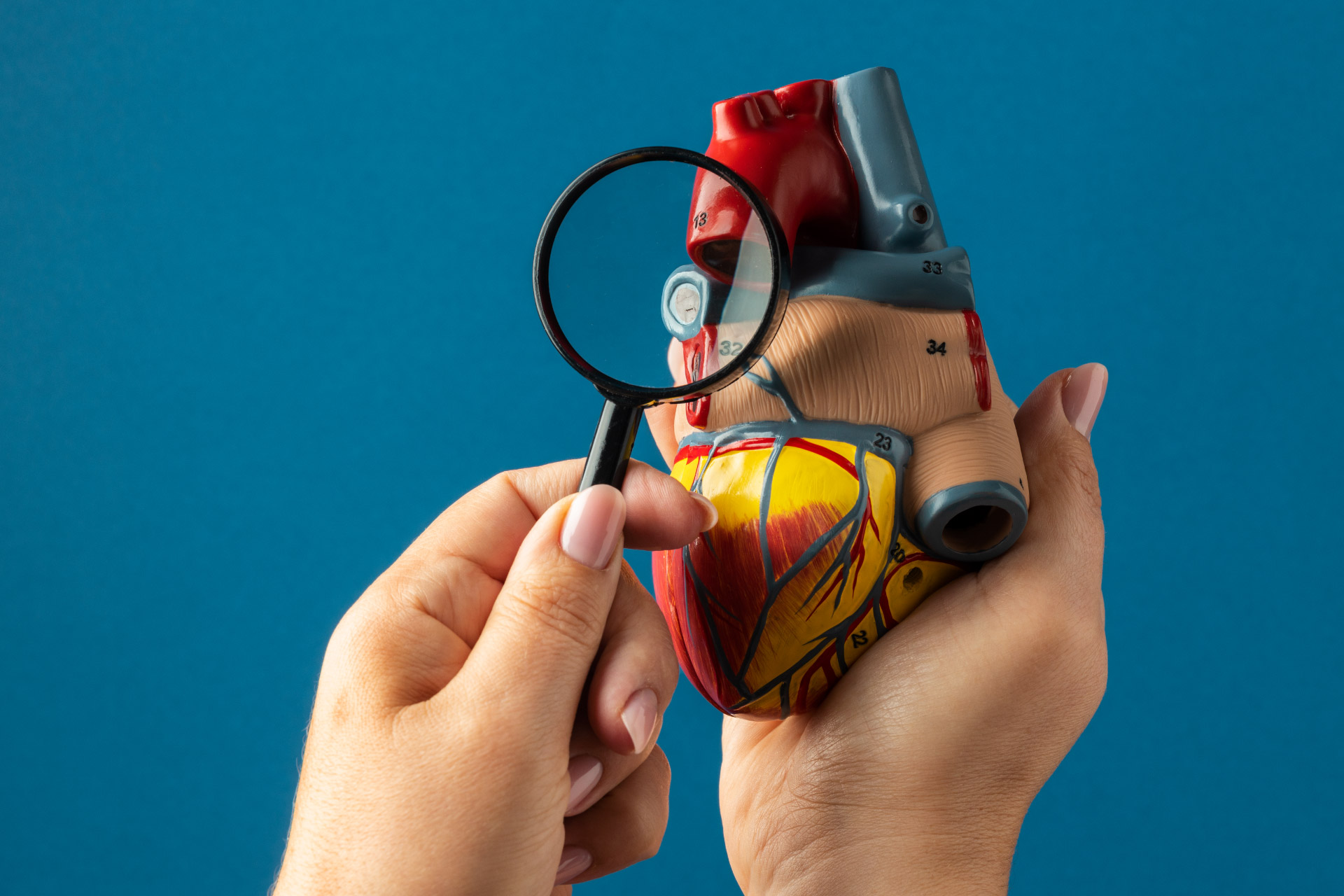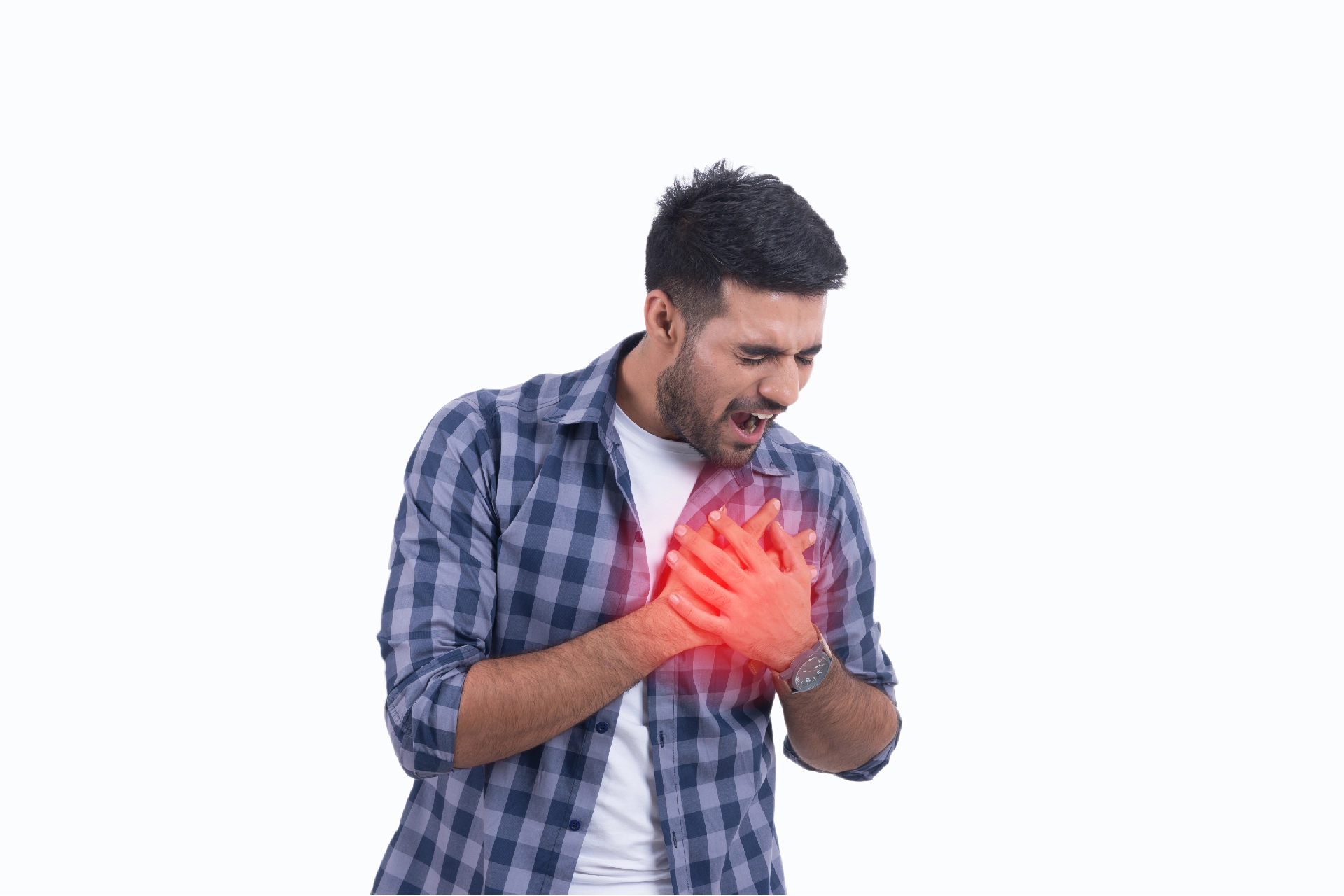Heart Health | 4 min read
Myocardial Infarction: What are Its Causes and Treatments? Important Things to Know!
Medically reviewed by
Table of Content
Key Takeaways
- Myocardial infarction occurs due to build-up of plaque in your heart
- Chest pain and shortness of breath are <a href="https://www.bajajfinservhealth.in/articles/heart-attack-symptoms-how-to-know-if-you-are-having-a-heart-attack">symptoms of heart attack</a>
- Myocardial infarction treatment includes medication and surgeries
Acute myocardial infarction, commonly known as heart attack, is a serious life-threatening condition where your heart does not get enough oxygen. This happens due to a buildup of fat, cholesterol, and other substances in your heart. This buildup is known as plaque, and it narrows or blocks one or more coronary arteries that supply blood to heart muscles [1, 2].
In the year 2016, there were more than 54.5 million cases of cardiovascular diseases in India [3]. In fact, around 24.8% of all deaths in India are associated with cardiovascular diseases including myocardial infarction [4]. However, a heart attack can be prevented. Read on to know more about this fatal condition.
Additional Read: 5 Types of Heart Diseases and Their Symptoms You Need to Keep an Eye on!Myocardial Infarction Causes
The main cause of a heart attack is the blockage or narrowing of coronary arteries due to the buildup of plaque. It may lead to the stoppage or decrease of blood flow. Any damage in the plaque can form a blood clot, which also can cause myocardial infarction.
Be aware of certain risk factors for a heart attack. These include:
Age and Gender
Men are at a greater risk of heart attack than women [5]. Also, men are at a higher risk after age 45 and women at age 55.
Family History
Your risk of heart attack is high if you have a family history of heart disease.
Lifestyle Choices
Factors such as physical inactivity, smoking, drinking alcohol, unhealthy diet, and drug abuse can increase the chances of myocardial infarction.
Health Conditions
Being obese, having high blood sugar, high LDL cholesterol, diabetes, and eating disorders increase the risks of a heart attack.

Stress
Chronic stress or anxiety is associated with acute myocardial infarction.
Preeclampsia
A history of high blood pressure during pregnancy can lead to the development of heart diseases.
Symptoms of Heart Attack
Although chest pain and shortness of breath are common symptoms of heart attack, the symptoms you experience may differ based on your gender. Some of the symptoms most often experienced by people with myocardial infarction include:
- Chest pain and pressure or tightness in the chest
- Shortness of breath
- Heart palpitations
- Nausea
- Vomiting
- Anxiety
- Sweating
- Irregular pulse
- Fatigue and weakness
- Stomach discomfort
- A feeling of impending doom
- Dizziness, light-headedness, or fainting
- Pain or discomfort in the shoulders, back, neck, arms, or jaw
Myocardial Infarction Treatment
Heart attack requires immediate medical attention to restore blood flow to the affected heart muscle. Treatment focuses on reducing pain, resolving blood clots, slowing down heart rate, and maintaining the function of the heart muscle. This may include medications and surgeries.
Anti-Clotting Medications
Blood thinners including aspirin to break up blood clots and improve blood flow
Thrombolytic
To break down and dissolve blood clots
Nitroglycerin
To widen blood vessels and relieve chest pain
Beta-Blockers
To relax heart muscles and lower blood pressure
Anti-Arrhythmia Medications
To stop or prevent malfunctions in your heart’s normal rhythm
Antiplatelet Drugs
To prevent new blood clots from forming and existing clots from growing
ACE Inhibitors
To reduce stress on the heart and lower blood pressure
Pain Relievers
Medications like morphine to alleviate chest pain and reduce any discomfort
Diuretics
To reduce the build-up of fluid and relieve the workload of the heart
Percutaneous Coronary Intervention (PCI)
A coronary angioplasty that uses a catheter-based device to improve blood flow
Coronary Artery Bypass Grafting
An open-heart surgery to reroute blood around the blocked artery area
Myocardial Infarction Prevention
You can reduce your chances of having myocardial infarction by knowing your risk factors and making lifestyle and dietary changes. Here are some measures you can take.
- Quit smoking tobacco
- Lower your stress
- Exercise daily for at least 30 minutes
- Limit fat, cholesterol, and salt in your diet
- Make efforts to maintain a healthy weight
- Take medication and manage your existing health conditions
- Get an annual checkup done and see your doctor frequently
Eat a healthy diet, quit smoking, and be physically active to reduce your risk of myocardial infarction. If you have heart conditions such as heart valve disease, get proper medical care. To receive the best medical advice, book an online doctor consultation with top cardiologists and heart specialists on Bajaj Finserv Health. Here, you can also book a test for healthy heart and stay fit.
References
- https://www.who.int/news-room/fact-sheets/detail/cardiovascular-diseases-(cvds)
- https://www.heart.org/en/health-topics/heart-attack/about-heart-attacks
- https://www.ahajournals.org/doi/10.1161/CIRCOUTCOMES.118.005195
- https://www.downtoearth.org.in/blog/health/india-s-burden-of-heart-diseases-study-says-elderly-women-more-at-risk-74993
- https://www.health.harvard.edu/heart-health/the-heart-attack-gender-gap
Disclaimer
Please note that this article is solely meant for informational purposes and Bajaj Finserv Health Limited (“BFHL”) does not shoulder any responsibility of the views/advice/information expressed/given by the writer/reviewer/originator. This article should not be considered as a substitute for any medical advice, diagnosis or treatment. Always consult with your trusted physician/qualified healthcare professional to evaluate your medical condition. The above article has been reviewed by a qualified doctor and BFHL is not responsible for any damages for any information or services provided by any third party.





